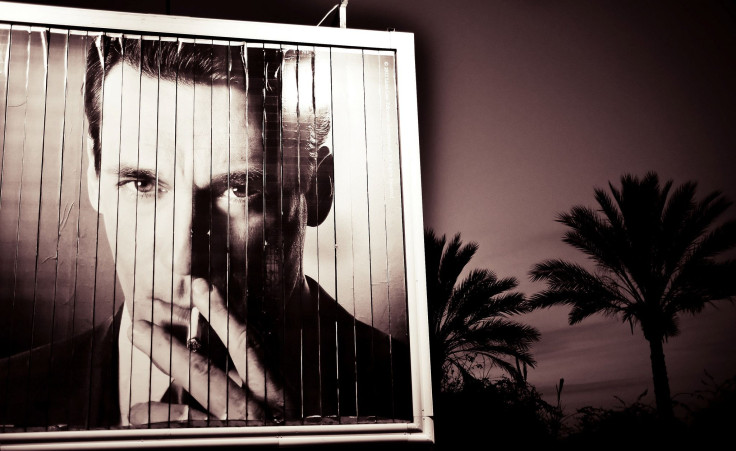From Walter White To Don Draper: The Science Behind Our Love Of Antiheroes

In recent years, television has evolved from the classic good guy vs. bad guy narrative into a morally ambiguous gray area that has left viewers addicted. We call the star of this story the antihero: someone who straddles the line between deviant morality and a justified cause, reminding us of the flaws inherent in our own behavior. But why have shows like Mad Men, Breaking Bad, and Dexter — just to name a few — received unprecedented amounts of viewers when their characters consistently strut over this line without turning back?
The answer to all this seems to lie within viewers’ psychology.
Psychologists have long understood the process by which we form emotional connections to certain characters through Dolf Zillmann’s affective disposition theory. According to the theory, pleasure and emotional response is derived from our partiality toward a certain character, usually based on our conceptions of morality. Classically, this has manifested through our tendency to root for the good guy/protagonist, and root against the bad guy/antagonist. While this theory does not predict our emotional responses, it helps explain why we seem to always have such unwavering opinions when watching our favorite shows.
According to Dr. Arthur Raney of Florida State University, this moral judgment is key to a character’s appeal. “In the same way that we are drawn to support the people and causes we think are right … in reality … our emotional side-taking with dramatic characters must also square with our notions of right and wrong,” he says in The Routledge Handbook of Emotions and Mass Media. “They must be morally justifiable.” It is our ability to justify a character’s actions that permits us to pick favorites, also allowing for some leniency.
While morality is often socially derived, it becomes more subjective when viewers are watching television. Zillmann calls this our “latitude of moral sanction,” a spectrum that becomes extended when consuming fiction, allowing us to justify morally ambiguous or completely deviant actions in fictional characters that we do not justify in ourselves.

But, according to Dr. Dan Shafer of Baylor University, the breadth of this spectrum varies among individuals. “For example, I might be just fine with Dexter brutally slicing and dicing a known serial killer, because he’s eradicating evil, but you may not be able to enjoy his actions; they may be too extreme,” he says. “Perhaps the method of punishment is unjust. If we feel that the punishment for a crime is too severe, our sense of justice will be violated as surely as if the punishment were not severe enough.”
Compromising our moral judgment occurs so that we may continue to enjoy the show. In his research with Raney, Shafer found that during “moral disengagement,” our need for pleasure wins out over our concept of right and wrong. He says, “We can actually switch off our prohibitions against immoral behavior as we judge media characters that we like. We may do this because, subconsciously we understand that if we don’t keep … rooting for the main character, we won’t end up enjoying what we’re watching; and we need to enjoy our entertainment.”
It also helps that each antihero happens to be the protagonist. Narratives are structured to guide our disposition toward protagonists. By allowing us inside of a protagonist’s head, we naturally align ourselves with him because we are viewing the show’s reality through his lens. Raney states, “we do not judge [antiheroes’] actions as morally appropriate or not on their own merits, but rather we interpret their actions as morally appropriate … because of the partiality that we extend to the protagonist or the enmity we have formed toward the antagonist.” Without the antihero being featured as a protagonist, we see less of the nuances that sway our opinions of their actions. He thus becomes your basic villain.
The final appeal of the antihero: escapism. This is no new concept; media has always been known to offer the brief hiatus we need from reality. Like other mediums, television allows us to turn our minds off and feel the emotional thrill that comes with an exciting narrative foreign to our own reality. Or perhaps we escape through the similarity of our situation to the antihero’s, who acts when we won’t.
“I think we identify with media characters because we like to vicariously experience what those characters are doing”, Shafer says. “We like to imagine ourselves in their position, and … what we would do if we had the opportunity or necessity to act in the face of evil or injustice.”
There is something satisfying about watching an antihero act on those violent impulses we sometimes share with him. It’s cathartic, it’s therapeutic, and we can experience the rush without the inevitable jail sentence.
But how does this play out on the small screen?
Walter White
One of the most popular antiheroes in television history, Walter White started off as your typical good guy and became the infamous Heisenberg through his decisions to make the best damn meth on the market. His appeal is pretty universal; although not all of us live in the South Western milieu of Albuquerque, N.M., our world aligns with Walter’s in often startling ways. For the most part, Walter’s actions can be justified.
“He wants to provide for his family because soon he won’t be around,” Shafer says. “He needs a quick way to do that. He isn’t motivated by power, money, or an evil soul; he’s motivated by love. He cooks meth because he loves his family.”
When it comes down to it, Walter’s transition into Heisenberg is fraught with so much personal anguish we cannot help but sympathize with him. When faced with stage 3 lung cancer, Walter must find a way to provide for his family despite financial burden and a health care system that is failing him. But more relatable is Walter’s disenchantment with life; his students will not listen to him, and he is living in the shadow of colleagues who have way more success than himself. By the end of the series, you’re almost happy Walter became the badass that he did; he represents the small man taking back his dignity to become the knocker instead of the knocked. You wish you had that courage, but at the end of the day, your future status as No. 1 meth cooker seems less likely.

Don Draper
A lot of Mad Men’s appeal comes from its ability to create nostalgia around a bygone era. However, if the show didn’t have a character like Don Draper as its lead, it’s hard to say if it’d be as successful. AMC just really knows how to turn out antiheroes.
Even though Don Draper does not (always) break the law, he completely ignores all other concepts of social morality. Whether it’s his unending stream of affairs, general misogyny, drinking and driving (and probable alcoholism), and oh the whole stealing an identity thing, Don Draper is one hell of a narcissist.
But between all these blatant transgressions, we see clips from Don Draper’s past, and we somehow let it slide. He changed his identity to escape a fraudulent past; his mother, a prostitute, died in labor, and his father beat him. Yet he came back from that, and there is hope; he is the American dream realized, even if he is a complete cad.
Dexter
Dexter Morgan’s world is completely foreign to us; not many can say they were born a psychopath and enjoy ritualistic killings in plastic-covered rooms. Yet Dexter’s unending murderous impulses mark another antihero that never ceased to draw us in, one blood-covered slide at a time.
Even though Dexter is debatably devoid of human characteristics, we can still sympathize with him. He’s taken his "needs" and channeled them into a type of vigilante justice for the Miami area. He’s like a murderous Batman, only a bit crazier. Not to mention he works for the Miami Police Department as a blood splatter analyst, catching the bad guys day and night.
Dexter’s seemingly “evil” character also has a justifiable source. As a child, Dexter was trapped in a shipping container for days up to his ankles in his mother’s blood after watching her be murdered by drug dealers… with a chainsaw. The image of him, as a 3-year-old, covered in blood and screaming, reoccurs throughout the season as a constant reminder that Dexter had little hope of leading a normal life.
Hey, at least he’s killing people for the sake of good, right?
TV is shifting to integrate human complexity; more and more shows feature psychological struggles between what is morally good, and what you have to do. Add in an element of danger and we have the antihero.
And he makes for great TV.
Ultimately, we can see ourselves within the internal strife of these antiheroes, no matter how distant their reality is from our own. Or maybe it is precisely that distance, that inability to obtain that bad-assery we secretly strive for that draws us in. Whatever it may be, you bet we’ll be watching, cheering those guys on one crime at a time.
Sources: Zillmann D, Cantor J. Affective Responses to the Emotions of a Protagonist. Journal of Experimental Social Psychology. 1977.
Raney A, Doveling K, Konijin E, et al. Media Enjoyment as Affective Dispositions Toward and Moral Judgment of Characters. The Routledge Handbook of Emotions and Mass Media. 2011.



























